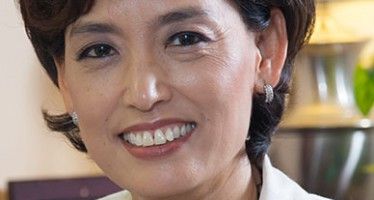Sen. Hernandez: Expand nurse practitioner duties
 An influential state lawmaker is once again seeking to expand the “scope of practice” for California’s nurse practitioners, despite strong objections from the state’s leading medical organization.
An influential state lawmaker is once again seeking to expand the “scope of practice” for California’s nurse practitioners, despite strong objections from the state’s leading medical organization.
State Senator Ed Hernandez, D-West Covina, has reintroduced legislation that would allow nurse practitioners to treat patients and obtain diagnostic tests without the sign-off from a physician. He serves as chair of the Senate Health Committee.
“This is not a new fight here in California, but with 2.5 million previously uninsured Californians receiving health coverage under the Affordable Care Act, we need to pass this law to ensure that more trained health care professionals are available,” said Hernandez, according to the Sacramento Business Journal.
He added, “It is well documented that California is facing a shortage of primary care physicians and giving trained nurse practitioners full practice authority would go a long way to help remedy this situation.”
2013: Revival of SB493
Last legislative session, Hernandez authored Senate Bill 493, which passed the Senate on a 22-12 vote. Among the expanded responsibilities included in that earlier bill were “ordering durable medical equipment, prescribing drugs, establishing diagnoses, referring patients, performing procedures that are consistent with their training, and delegating tasks to medical assistants, among others.”
The 2013 measure eventually stalled in the State Assembly, due in large part to the concerns from the California Medical Association. The CMA, which represents 40,000 members of the state’s medical community, argued Hernandez’s proposal would compromise patient safety.
“Nurse practitioners are an important part of the health care team and, when practicing under physician supervision, can significantly increase access to quality medical care in a community,” the CMA wrote in opposition to SB493, according to a legislative analysis. “Allowing nurse practitioner practice without standardized protocols and physician supervision reduces patient safety and quality of care.”
Hernandez has yet to offer specific language for this session’s bill, Senate Bill 323. In order to meet the February 27 bill introduction deadline, he introduced placeholder language, also known as a “spot” bill.
Health care system stressed by Affordable Care Act
Fewer than 5 percent of the state’s 408,413 nurses have the advanced training and years of experience to be designated a nurse practitioner. As of Sept. 2013, 18,541 active nurse practitioners were registered and licensed by the Board of Registered Nursing.
Hernandez contends these nurse practitioners can help address the increased demands on the country’s health care system, which is under stress from the wave of new patients that signed up for insurance rather than pay a fine under the Affordable Care Act, also called Obamacare. In 2014, 6.7 million people obtained private health insurance, according to the Associated Press, “flooding a primary care system that is struggling to keep up with demand.”
Here in California, an estimated 1.2 million people have enrolled in new private health plans since the launch of the ACA, according to the San Jose Mercury News. That doesn’t include another 2.7 million new enrollees in Medi-Cal, the state’s taxpayer-funded health program. More than 12 million people, roughly a third of the state’s population, are enrolled in Medi-Cal.
Millions of new patients, without a corresponding increase in medical care providers, have led to longer wait times and people complaining of difficulty finding doctors accepting new patients — a problem that, Hernandez says, can be addressed through expanded scope-of-practice.
“If we truly want to increase access to quality care, especially in areas of our state where the provider shortage is at its worst, then we must allow trained medical professionals like Nurse Practitioners the ability to practice to the full extent of their training,” Hernandez said in a statement last year. “It’s unacceptable to mandate people purchase health coverage without taking steps to ensure those same people are able to use their coverage to see a qualified health care provider.”
A 2014 report by the Bay Area Council Economic Institute argued that expanding the scope-of-practice for nurse practitioners is “one of the most effective steps that states can take to increase the supply of primary care providers while maintaining high quality and driving down costs.”
In its placeholder language, SB323 promises it “will assist in addressing the primary care provider shortage by removing delays in the provision of care that are created when dated regulations require a physician’s signature or protocol before a patient can initiate treatment or obtain diagnostic tests that are ordered by a nurse practitioner.”
Shorter wait times with lower professional standards
It’s not yet clear how many nurse practitioners would be covered by Hernandez’s proposal. In 2013, Hernandez began with a requirement that nurse practitioners receive 6,240 hours under the supervision of a physician. The bill was later amended to reduce the time by a third to just 4,160 hours.
That change reflects the trade-off for proponents of scope-of-practice expansion: in order to add a meaningful number of new health care providers, the change requires a reduction in professional standards. Two-thirds of the state’s nurse practitioners already “have furnishing numbers … which allows them to order or furnish drugs and devices to patients using approved standardized procedures,” according to the legislative analysis for Hernandez’s 2013 bill. In other words, the majority of nurse practitioners already have one of the expanded powers sought with the proposal.
As CalWatchdog.com has reported, Hernandez unsuccessfully introduced a trio of scope-of-practice bills during the 2013-14 legislative session. The most controversial of the three measures, Senate Bill 492, would have expanded the scope-of-practice for optometrists.
Hernandez and his wife, Diane, operate an optometry practice in La Puente. As of June 2013, Hernandez had accepted more than $140,000 in campaign contributions from optometrists.
Related Articles
Education debt debate heats up
With the start of a new year, a fresh array of political, economic and legal developments promise to sharpen California’s
Early Returns: Democrats could lose super-majority in State Assembly
It’s going to be a very long night for California political observers. Just eight months after corruption scandals cost California
California’s version of Obamacare a success? Not by the numbers
I’m pretty amazed at how long the CA media have gone along with the idea that the state’s version of




